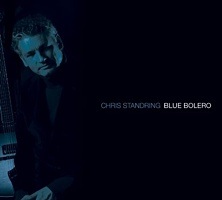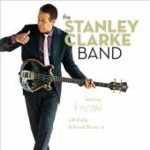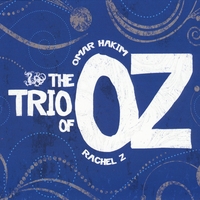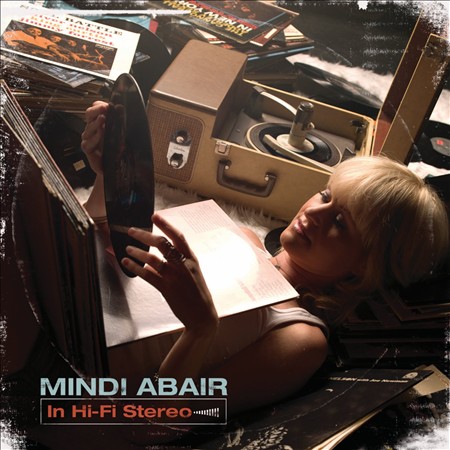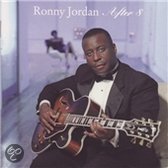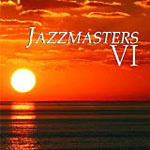Chris Standring has never made an album quite like Blue Bolero. Standring could have stayed in a smooth jazz comfort zone of safe and innocuous music. Low risk can mean high reward, but Standring chose to go a different, riskier and far more ambitious route. The result is an album he should be both pleased with and proud of.
There are signature moments in a musician's career when they make an album that both defines them and sets the course for their future. Herbie Hancock had his with Head Hunters (Columbia, 1973), Weather Report reached their summit with Heavy Weather (Columbia, 1977), and George Benson took off with Breezin' (Warner Brothers, 1976). Whether or not Blue Bolero belongs in that kind of distinguished company is a judgment call, but it is the best album Standring has made yet.
2. Fourplay/Let's Touch the Sky: For Fourplay, it's all a numbers game. 2011 marks the band's 20th anniversary, Let's Touch the Sky is their 12th album, and “new guy," Chuck Loeb is both Fourplay's third personnel change and third guitarist replacing Larry Carlton, who stepped in for Lee Ritenour in 1998.
Loeb has the advantage of appearing on several of James' solo albums, and that familiarity serves him well, as his guitar is featured early on his own “3rd Degree." Loeb's style meshes well with the signature Fourplay radio friendly tunes, but his playing is noticeably funkier than Carlton, and his familiarity with James would seem to indicate his period of adjustment into this supergroup will be a relatively quick one.
Changes in personnel can be leading indicators of a band reaching the end of the line. Not this time. If anything James, Mason and East seem invigorated by their new playmate. Loeb is a perfect fit, and with his addition to the group as both a composer and player, Fourplay is well situated to continue on both artistically and commercially as a force with which to be reckoned.
3. Stanley Clarke/The Stanley Clarke Band: Stanley Clarke is still playing the bass the way he wants to, still pulling sounds out of his assortment of electric, acoustic and Alembic basses like nobody else, and still slapping, plucking and thumbing his way through contemporary, fusion jazz, rock, funk and whatever else he puts his mind to.
Clarke, in all his improvisations and incarnations as an artist, has never distanced himself from his jazz-rock roots. “Larry Has Traveled 11 Miles and Waited a Lifetime for the Return of Vishnu's Report," despite its clumsy title, is a well-intentioned homage to the genre's giants including drummer Tony Williams' Lifetime, Weather Report, trumpeter Miles Davis and Mahavishnu Orchestra among others.
There's a sense of closure from The Stanley Clarke Band and it's quite deliberate. Clarke says he's done with making electric albums for a while. Aged 59, Clarke has considerable and deserved pride in what he's accomplished as a composer and musician and whatever direction his future endeavors take him in, his legacy is already secured. He is to the electric bass what Jimi Hendrix was to the electric guitar; an unparalleled virtuoso who sets the standard for others to follow even as they create their own legacies.
4. The Trio of Oz: The dilemma for modern jazz artists is how to grab the ears of younger audiences, while remaining respectful of the legacy of Duke Ellington, Miles Davis, and Louis Armstrong without recycling yet another variation of “So What?" The eclectic and restless musical tastes of drummer Omar Hakim and pianist Rachel Nicolazzo (aka Rachel Z) offer some mighty impressive bait to reel them in, The Trio of Oz's repertoire reading like an hour's worth of college radio station programming.
Whenever jazz is in danger of becoming safe, static and scared to stray out of its comfort zone, that's when it's in the fast lane to becoming the Muzak for museums naysayers already claim it is. The Trio of Oz strikes that delicate balance between respecting tradition while refusing to be handcuffed by it. There's a lot here, in one of 2010's most brilliant debuts for both purists and pioneers to admire.
5. George Duke/Deja Vu: Duke is a proven funk master, highly successful producer, underrated pianist and masterful entertainer who, while never taking himself too seriously, never takes his jazz roots for granted, no matter how often he's accused of abandoning them. Déjà Vu is a splendid, high energy and completely satisfying record by Duke, who has mastered the delicate art of looking back while simultaneously moving forward.
6. Mindi Abair/In Hi-Fi Stereo: As soul music has vanished from urban radio, driven out by the predominance of rap, hip-hop and Auto Tune, it's become harder to find real soul made with real instruments, either on record or on the airwaves.
A Mindi Abair album is not the go-to place that comes to mind for a showcase of old school soul and bluesy funk. Abair has carved out a niche as a capable, if not always inspired, smooth jazz saxophonist, cut from the cloth of her contemporaries Kenny G., Richard Elliot and others, whom occasionally dip a toe into R&B, but never totally immerse themselves in the idiom.
Once again, the danger of making assumptions is proven, because with In Hi-Fi Stereo Abair takes the plunge headfirst into the deep end of soul-infused jazz. Equal parts homage to the music of David Sanborn, Hank Crawford and The Crusaders offer a testimony of her own artistic growth. Abair makes a declarative statement that she is a formidable talent who can do far more than smooth jazz noodling.
7. Hiromi/Place To Be: Some musicians take the tortured artist thing too far. With their on-stage, “in the zone" demeanor, some pianists look as if they're on the verge of a heart attack. If they relaxed a bit would anyone think less of them? Hiromi Uehara is certainly a serious musician yet never leaves the impression of taking herself too seriously. She's having too much fun for that.
Since her 2003 debut, Another Mind (Telarc), Hiromi has straddled genres of post-bop, acid jazz, and freewheeling improvisation while refusing to be neatly categorized. A leader in her own right and an accompanist,she's proven herself to be no neophyte and for seven years through growth and development, she continues to create challenging music that is both edifying and gratifying.
8. Sade/Soldier of Love: The best thing about Sade Adu is also the worst thing about Sade Adu: her near fanatical commitment to consistency. There's no difference between vintage Sade and contemporary Sade. She's the antithesis of the snowfall cliché: with Sade you always know exactly what you're going to get.
Soldier of Love is Sade's first album in a decade, and only the sixth by the group in 25 years. Flooding the market with material is not a crime Adu can be accused of. However, while this is a new album it's the same sort of music Sade has been making all along.
Soldier of Love seems longer than its tidy 41 minutes. It might be because, even on the mid-tempo songs like the title track and “Babyfather," neither Sade Adu the front woman or Sade the band swing. But then, you don't buy a Sade album because you want to dance. You buy a Sade album because no matter how bad your day's been, hers has been worse. A lot worse.
9. Ronny Jordan/After 8: The ninth best album of the year was actually released in 2004, but I didn't hear it until 2010 and since it's my list I get to choose my own qualifying criteria. There's no shortage of great guitar players in jazz, but so many of them are only recycling riffs from Wes Montgomery/George Benson. Jordan is going off in different directions as if to say, “"We've done that. Let's try this."
In a field full of imitators, Jordan is an original and After 8, he goes beyond the acid-jazz/funk and just kicks back to jam. The result is an album I listen to repeatedly and with the volume turned up high.
...and the WORST album of 2010 was...
10. The Jazzmasters/The Jazzmasters VI: To understand why Paul Hardcastle's latest Jazzmasters album is such a tedious drag its first necessary to understand that the multi-instrumentalist has taken an unfortunate interest in a subdivision of smooth jazz, called Chill.
Chill relies on ambient sounds, airy vocals, quietly tinkling keyboards, and the occasional alto sax bubbling away in the mix. It's so smoothed-out and laid back that it's nearly comatose. Chill is less ambitious than smooth jazz but not as lightweight as New Age. Take a marshmallow, pour honey over it, dip it in a sugar bowl, then swallow the gooey, gloppy mess whole in one bite. That's Chill.
Note: I really, really hated this album. When I wrote my first review I just dumped all over it for the cardinal sin of being a lazy-ass waste of time. The editor at All About Jazz rejected the review and we swapped some terse and tense e-mails back and forth over lines like this:
“ This is music to peel potatoes, iron clothes and vacuüm the rug by. This album is so devoid of an impromptu moment, Hardcastle probably woke up one morning, sipped a cup of coffee, padded off in his slippers and robe to a home studio, banged this out in a few hours and was finished by lunch."
“This is modern day Muzak that should be piped in the overhead speakers of upscale shopping malls and day care centers to lull unruly pre-schoolers into taking their naps."
“Jazz" is a catch-all for various genres that are only loosely connected to each other. Paul Hardcastle has carved out a niche for himself as a staple of the smooth jazz/Chill division, but it takes a certain presumption to proclaim oneself as a “Jazzmaster" when the music barely meets the minimum qualifications."
I don't usually like ripping a musician a new one, but Jazzmasters VI didn't just bore and displease me. It offended me on a fundamental level. I gave in to the editor's wish for a more diplomatic review, but I make no apologies for dogging out the record for the utter piece of shit it was.
To find the rose you gotta risk the thorns.
